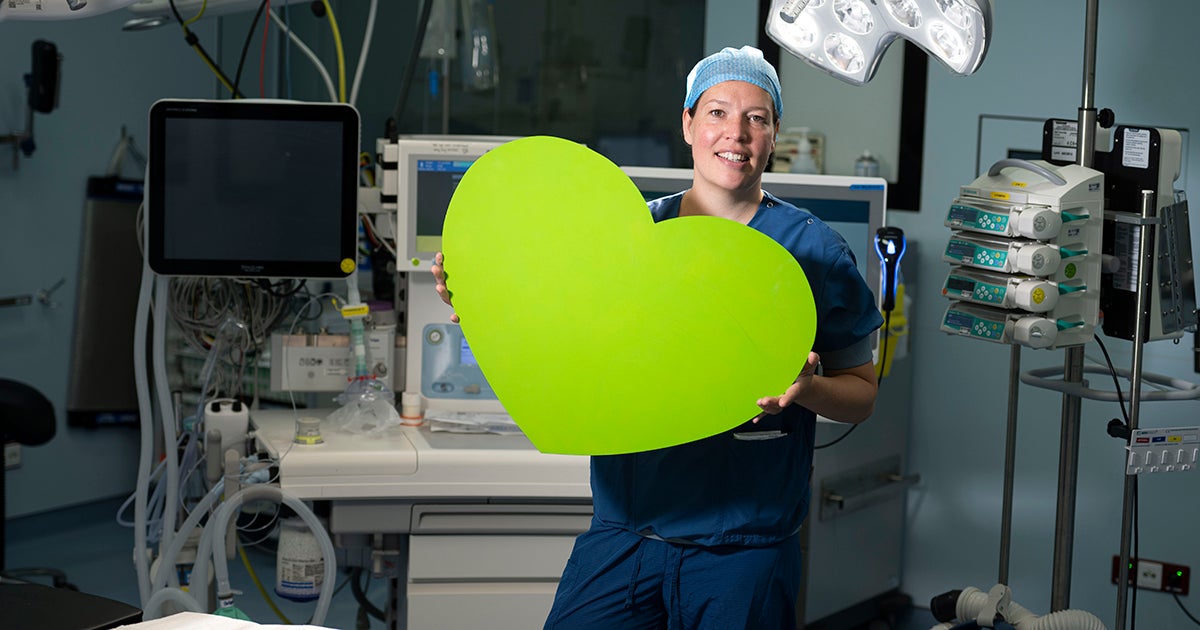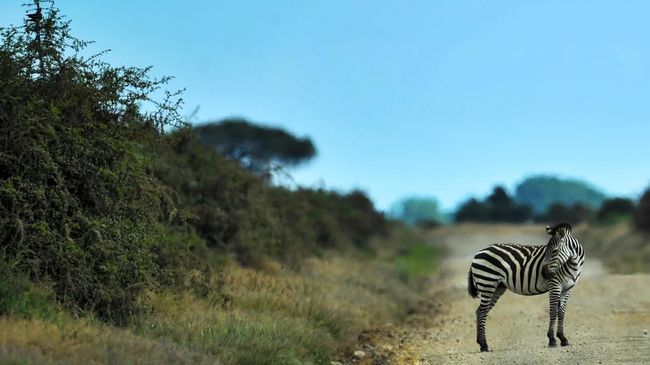She has not been involved in sustainability all her life. But that changed during her Anaesthesiology training. She dug in and marveled at the huge footprint of the operating rooms. Sustainability in the OR was not yet a topic, but now it is becoming more and more. “If we really want to make an impact, we can do that here,” thought Julia Heusdens, anesthetist at UMC Utrecht.
The OR has a major environmental impact for several reasons: the high energy consumption due to the air ventilation system and the enormous amount of disposable materials. Think of syringes, needles, gloves, mouth masks, breathing tubes. There is a lot of waste in the OR. Julia: “This was a real eye-opener for me. The air ventilation system refreshed the air day and night, even when the operating room was not in use. That has now been adjusted. But also medication, for example: you can keep a patient under anesthesia with a drip with sedative, or with damp that the patient inhales. Those vapors are greenhouse gases and remain in the atmosphere for a long time. We now opt for medication via the drip where possible. Much more sustainable.”
Students visit the waste station at UMC Utrecht
During her education, little attention was paid to sustainability. It wasn’t a priority. “It goes without saying that everyone is busy caring for the patient. That’s why I always started the conversation with colleagues and physician assistants. Nice conversations! Because most people really want to contribute to a sustainable world, they just need to know how. And you have to get everyone involved. Together with like-minded people, I organized reference evenings and education, where we exchange knowledge and ideas about how we can keep this planet liveable. Thanks to the many courses that UMC Utrecht offers, we can include the theme of sustainability in the courses of the young generation of healthcare professionals. For example, we are now going to look at the waste station with students. How is the logistics of all UMC Utrecht’s waste arranged? What is recycled or how do we separate the types of waste? Very educational.”
Reusing an orange garbage bag and breathing tubes in the OR
Also thanks to the EWUU Alliance students investigate which sustainable choices can be made. Consider, for example, method of oxygen use, type of laryngoscope blades, blood pressure bands, 20 ml vs. 50ml propofol ampoules. Among other things, the knowledge about propofol ampoules and oxygen consumption is now actually applied in the OR. “And a small sustainable action that I always use: I always check before an operation whether the orange bag is there to separate plastic. If it hangs there, people will automatically separate the plastic. Another example of sustainability in the OR is the longer use of breathing tubes. Where traditionally the breathing hoses lasted a week, we now reuse the breathing hoses for longer and the hoses last a month! Of course we checked the science to see if this is safe for the patient, because safety comes first.”
Keeping our planet habitable for generations to come
Every day, UMC Utrecht works towards a healthy life and a healthy society, also for future generations. But providing care has a negative impact on the climate and people become unhealthier as a result. “I want to make that contrast smaller, especially now that I myself have brought the generation after us into the world. We’ve lived too big for too long. And we are not yet sufficiently aware of where something comes from. Think of the hamburger on your plate, the H&M T-shirt that is far from being produced sustainably in Pakistan. The more you know about how you burden the world, the more you make sustainable choices.”
There is so much to do, just start!
Julia hopes that there will be more room in healthcare to really get started with a better, healthy and sustainable future. “Many people on the work floor at UMC Utrecht have good ideas and are benevolent, but apart from patient care there is often little time for developing initiatives. I hope that changes. There is so much to do! And even if you only have a small idea, that too contributes to a more sustainable world. Don’t be discouraged by the big task. Sustainability is now hip, it is increasingly a topic. But thinking and acting more sustainably is the new normal. Just start, it’s easier than you think.”
At UMC Utrecht we work every day to improve health. We want to contribute to a healthy life and a healthy society, also for future generations. Yet providing our care has a negative impact on the climate. We want to break through that contradiction. By making our care, our research and education more sustainable, now and in the future. In this summer series Sustainability at the UMC Utrecht tell colleagues with a green heart about what motivates them to make their work more sustainable. Read all the stories from the summer series sustainability >
Questions, comments or tips for the editors?
2023-08-01 05:38:03
#Julia #start


